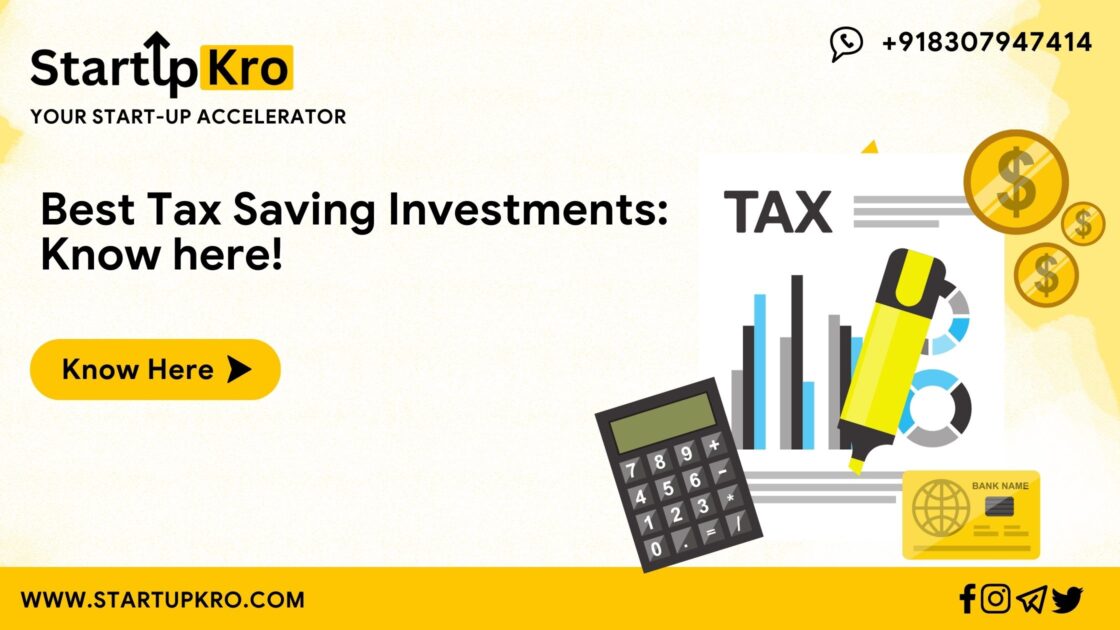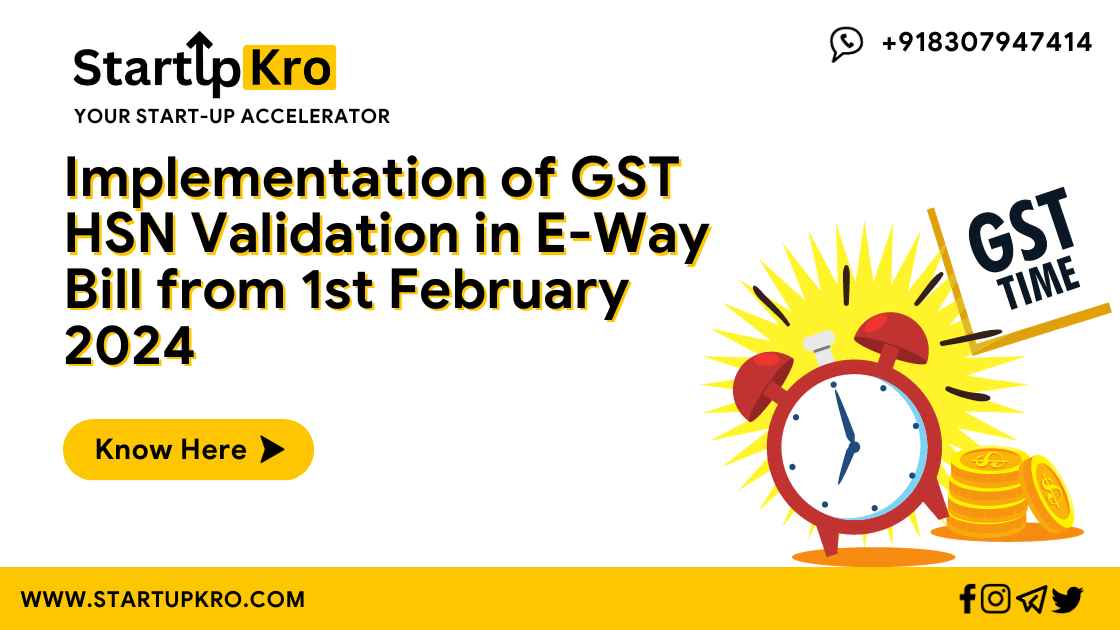
Best Tax Saving Investments: Know here!
Incorporating tax-saving investment measures is a crucial aspect of effective financial planning. It not only helps individuals achieve their financial objectives but also minimizes their tax liabilities. To assist you in making informed decisions, here’s a comprehensive list of the

Subscribe To Our Weekly Newsletter
Incorporating tax-saving investment measures is a crucial aspect of effective financial planning. It not only helps individuals achieve their financial objectives but also minimizes their tax liabilities. To assist you in making informed decisions, here’s a comprehensive list of the best tax-saving investment options and plans for 2023:
ULIP (Unit Linked Insurance Plan):
Unit Linked Insurance Plans (ULIPs) offer a unique combination of life insurance and investment opportunities. They allow investors to allocate their funds into equity or debt funds based on their risk tolerance. ULIPs provide policyholders with a comprehensive package, ensuring insurance coverage and investment growth. In the event of the policyholder’s demise, ULIPs offer various payouts to beneficiaries.
- Returns: The returns depend on the plan’s performance.
- Risk: ULIPs carry a moderate to very high level of risk, depending on the underlying investment options.
- Lock-In Period: ULIPs have a lock-in period of 5 years.
- Tax Deduction Benefit: Policyholders can avail tax deduction benefits of up to ₹1.5 lakh in a financial year under Section 80C of the Income Tax Act.
PPF (Public Provident Fund):
The Public Provident Fund (PPF) is a popular long-term investment option in India. Introduced by the National Savings Institute, PPF offers an attractive rate of interest and tax benefits. The primary objective of PPF is to mobilize small savings by providing an investment avenue that combines reasonable returns with tax advantages. The interest earned and the returns from PPF are tax-free.
- Returns: As of Oct 1, 2021 – Dec 31, 2021, the interest rate stands at 7.1% per annum, revised quarterly.
- Risk: PPF is considered an extremely low-risk investment as it enjoys a sovereign guarantee.
- Lock-In Period: PPF has a lock-in period of 15 years.
- Tax Deduction Benefit: Investments in PPF qualify for tax deduction benefits of up to ₹1.5 lakh in a financial year under Section 80C of the Income Tax Act.
Fixed Deposit:
Tax-saving Fixed Deposits offer individuals the opportunity to save taxes through deductions under Section 80C of the Income Tax Act. By investing in these fixed deposits, investors can claim a maximum deduction of ₹1.5 lakh. However, the interest earned on tax-saving fixed deposits is subject to taxation. The interest rates for such fixed deposits typically range from 5.5% to 7.75%.
Life Insurance:
Life insurance serves as a financial product that provides both insurance coverage and tax-saving benefits. While the primary purpose of life insurance is to offer financial protection, it also offers tax advantages. Premiums paid and maturity proceeds from life insurance policies are exempt from taxation. Additionally, any returns such as endowment or money-back offered by the policy are also tax-free. Individuals can claim tax exemption up to the maximum limit of ₹1.5 lahks under a life insurance policy.
Senior Citizen Savings Scheme: The Senior Citizen Savings Scheme is a specially designed investment avenue for senior citizens in India. The government announces the scheme’s interest rate every quarter, currently set at 8%. Once invested, the interest rate remains fixed throughout the tenure, with quarterly payouts to the senior citizen. The scheme has a lock-in period of 5 years, but premature closure is permitted with a penalty. The Budget 2023 proposes increasing the maximum deposit limit to ₹30 lahks from the current ₹15 lakh. While interest earned from the scheme is taxable, senior citizens can claim deductions under section 80 TTB for the interest received.
National Savings Certificate:
The National Savings Certificate (NSC) is a fixed-income investment scheme designed to meet the needs of small and middle-income investors. Similar to the Public Provident Fund (PPF), the NSC is a compelling tax-saving option with low risk. By participating in the NSC program, investors can earn an annual interest rate of 6.8%. The scheme allows for a qualified tax deduction of up to ₹1.5 lakh, and the interest earned is also eligible for tax exemption.
- Interest Rate: The NSC offers an attractive interest rate of 6.8%.
- Investment Amount: The minimum investment amount is ₹1,000.
- Investment Tenure: The NSC has a lock-in period of 5 years.
- Tax Benefits: Investors can avail a tax deduction of up to ₹1.5 lakh under Section 80C of the Income Tax Act.
Tax-Saving Mutual Funds:
Tax-saving mutual funds, particularly Equity Linked Savings Schemes (ELSS), are recognized as excellent options for individuals seeking to minimize their tax burden while aiming for higher returns. These funds invest primarily in stocks or mutual funds, but it’s important to note that they carry market-related risks. ELSS funds have a mandatory lock-in period of three years and can be accessed with a minimum contribution of ₹500. By investing in recommended mutual funds or ELSS funds, individuals can potentially save up to ₹46,800 in taxes.
- Interest Rate: ELSS funds have the potential to deliver returns ranging from 15% to 18%.
- Investment Amount: The minimum investment amount is ₹500.
- Investment Tenure: ELSS funds have a lock-in period of 3 years.
- Tax Benefits: Investors can avail a tax deduction of up to ₹1.5 lahks under Section 80C of the Income Tax Act, and the returns are also tax-exempt under Section 10(10D).
Health Insurance or Mediclaim:
Health insurance plays a crucial role in providing financial security for medical expenses. It offers coverage for hospitalization, surgeries, treatments, diagnostic tests, medication costs, and sometimes even preventive care and wellness services. Premiums paid for health insurance policies qualify for tax benefits under Section 80D of the Income Tax Act. Individuals can claim deductions of up to ₹15,000 for themselves and ₹20,000 for senior citizen parents, resulting in a total deduction of ₹35,000.
In addition to health insurance, critical illness insurance policies offer tax benefits on the maturity value received. This ensures financial protection in case of a serious illness or medical condition.
Pension Plans:
Various pension plans, such as Pension Funds, National Pension Scheme (NPS), Immediate Annuity Plans, and Deferred Annuity Plans, are available to secure your financial future. These plans serve specific purposes and provide tax benefits.
For individuals below 60 years of age, the income tax exemption limit is ₹2.5 lakh. Retired individuals aged above 60 years enjoy a higher exemption limit of ₹3 lahks, while super senior citizens aged above 80 years have an exemption limit of ₹5 lahks for the Assessment Year 2023-24. Additionally, retired employees can claim an additional deduction of ₹50,000 against their salary income. Section 80CCC specifically provides an exemption limit of up to ₹1.5 lakhs for individual taxpayers who have opted for pension plans.
- Interest Rate: Pension plans offer varying interest rates, ranging from 2.25% to 9.00%.
- Investment Amount: There is no cap on the maximum investment amount.
- Investment Tenure: The tenure of pension plans can extend up to 100 years.
- Tax Benefits: Investors can avail of tax benefits of up to
- ₹1.5 lakh under Section 80CCC of the Income Tax Act.
Employee Provident Fund (EPF):
The Employee Provident Fund (EPF) is a retirement savings scheme for salaried individuals in India. Both the employee and the employer contribute a portion of the employee’s salary to the EPF account. The contributions made towards EPF are eligible for tax benefits under Section 80C of the Income Tax Act. The interest earned on EPF contributions is also tax-free. EPF offers a fixed interest rate declared by the government each year.
- Interest Rate: The EPF interest rate is revised annually and currently stands at 8.5% for the financial year 2022-23.
- Contribution Limit: The employee contributes 12% of their basic salary, while the employer matches the contribution.
- Lock-In Period: Withdrawal from the EPF account is permitted under certain conditions such as retirement, unemployment, or critical illness.
- Tax Deduction Benefit: EPF contributions qualify for tax deduction benefits of up to ₹1.5 lakh under Section 80C of the Income Tax Act.
Conclusion
It’s essential to note that the tax-saving investment options mentioned above have different risk profiles, returns, and lock-in periods. Before making any investment decisions, individuals should assess their risk appetite, and financial goals, and consult with a financial advisor for personalized guidance.
Furthermore, tax laws and regulations are subject to change. It’s advisable to stay updated with the latest amendments and consult with a tax professional or financial advisor to ensure accurate tax planning and compliance with the prevailing tax laws.
Share:

Book an Appointment
Schedule an Appointment with our Expert here.
Social Media
Most Popular


How to Respond to Trademark Objection


